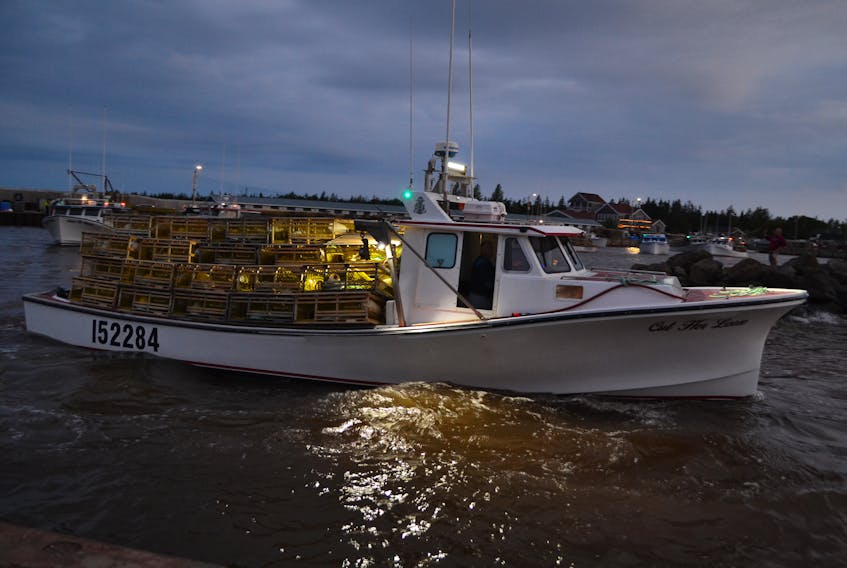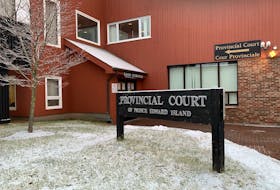O'LEARY, P.E.I. — A fisheries officer attending the annual meeting of the Prince County Fishermen’s Association said the amount of lost or abandoned lobster gear retrieved from the Northumberland Strait lobster grounds after the fall season ended was "extremely high".
"[It was] higher than I’ve experienced in my time being here,” said fisheries officer Anthony Cheverie.
Cheverie said gear was retrieved throughout Lobster Fishing Area 25 (LFA 25), which takes in fishermen from P.E.I., New Brunswick and Nova Scotia.
The officer did not have an actual number of retrieved traps to report at the PCFA annual meeting, but a Department of Fisheries and Oceans (DFO) spokesman has subsequently reported it was more than 350 traps.
There were approximately 50 traps retrieved following the spring season for LFAs 24 and 26A combined.
Lost gear is often referred to as ghost fishing because it can continue to trap lobsters long after the fishing season ends.
Some fishermen at the annual meeting said they’d never encountered so much lost gear before and suggested the Sept. 6 powerful post-tropical storm Dorian would have been responsible for at least some of it.
Fishermen questioned why they were not permitted to pick up and return to port any lost gear they discover during fishing trips, and why they were not permitted to participate in a post-season gear retrieval exercise.
There was fisherman participation in gear retrieval following the spring season, but the practice was not permitted following the fall season.
“Operations to remove lost and abandoned gear can be dangerous. The safety and security of everyone participating is an important consideration for the department,” a DFO spokesperson responded in an email to questions on why fishermen were not involved in the 2019 cleanup.
Laura Ramsay, with the P.E.I. Fishermen’s Association, said fishermen are concerned about the amount of lost gear and agreed Canadian regulations “make it hard for fishermen to help go clean up that gear”.
Cheverie said there are legal issues at play, and that some of those issues might be resolved by next year.
He cautioned fishermen against bringing lost gear onboard after the season, as a surveillance plane could be flying over and record a vessel with gear onboard out of season.
Gear Innovation Summit planned for Feb. 11, 12
In response to questions, DFO said it will be issuing authorizations as part of the Sustainable Fisheries Solutions and Retrieval Support Contribution Program, which will allow third parties to retrieve lost fishing gear.
As well, the federal government is working with the industry through a newly-launched ghost gear fund, and will support harvesters who wish to acquire new technologies to reduce gear loss and to take concrete actions to support industry-led gear retrieval and responsible disposal.
On Feb. 11-12 in Halifax, DFO will host a Gear Innovation Summit, bringing together harvesters, technical experts and government and non-government agencies to share information and learn about new technologies and programming aimed at the prevention reduction and retrieval of lost gear.
Cheverie reminded fishermen they have a responsibility to report lost gear within 24 hours of it going missing.
Retrieved gear is inspected by fisheries personnel, and there is potential for charges to be laid should it be determined the gear had not been reported missing.
Serviceable gear that had been reported missing may be returned to its lawful owners.









